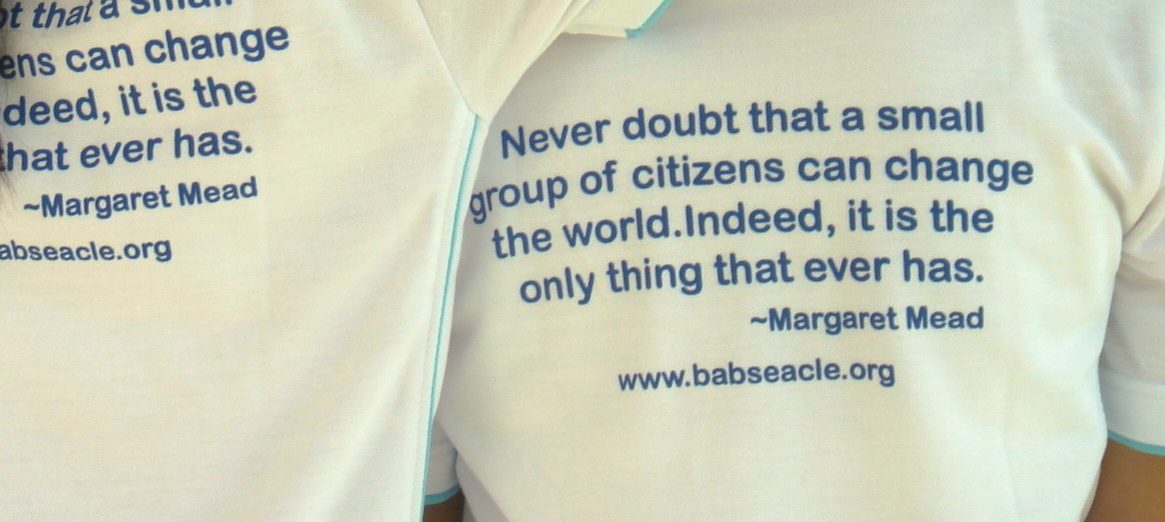 Bridges Across Borders Southeast Asia Community Legal Education (BABSEA CLE) is an international, non-governmental legal education, access to justice organisation, working to bring people together to overcome injustice and inequity in Southeast Asia since 2003. BABSEA CLE works collaboratively with various universities, law students, and organisational partners to develop, implement and strengthen CLE programmes throughout Thailand, Cambodia, Viet Nam, Indonesia, China, Laos, Malaysia, Singapore and the Philippines. Within the region, CLE programmes are a timely and indispensible conduit educating law students and faculty on the social justice needs of marginalised communities. Simultaneously, the programmes link indigent, vulnerable and marginalised communities to needed legal resources capable of helping them understand and achieve their legal rights and access justice. To achieve these broad and comprehensive goals the BABSEA CLE model works to:
Bridges Across Borders Southeast Asia Community Legal Education (BABSEA CLE) is an international, non-governmental legal education, access to justice organisation, working to bring people together to overcome injustice and inequity in Southeast Asia since 2003. BABSEA CLE works collaboratively with various universities, law students, and organisational partners to develop, implement and strengthen CLE programmes throughout Thailand, Cambodia, Viet Nam, Indonesia, China, Laos, Malaysia, Singapore and the Philippines. Within the region, CLE programmes are a timely and indispensible conduit educating law students and faculty on the social justice needs of marginalised communities. Simultaneously, the programmes link indigent, vulnerable and marginalised communities to needed legal resources capable of helping them understand and achieve their legal rights and access justice. To achieve these broad and comprehensive goals the BABSEA CLE model works to:
- Ensure the growth of university-based CLE programmes focusing on community empowerment and legal service outreach throughout Southeast Asia;
- Assist in developing a regional and networked cadre of pro-bono and community service minded law graduates and civil society advocates for justice;
- Provides a ‘safe space’ to explore and practice CLE approaches that transcend the notion of tolerance, enabling advocates for justice to stand in solidarity with poor, vulnerable and marginalised communities;
- Facilitate linkages with CLE programmes and other Non-State Actors (NSAs) including civil society organisations, law firms, corporations, and Local State Actors (LSAs) including governmental policy makers, municipalities and justice sector institutions;
- Develop and design a multi-platform open-source universal access database of freely available CLE training materials through Open Distance Learning (ODL) and Open Educational Resources (OERs), and
- Provide legal knowledge and legal services to the poor, vulnerable and marginalised communities.
The model draws on critical pedagogy to assist prospective lawyers and advocates to justice to develop a critical stance to challenge exclusion based on biases and the practice of ‘othering’. BABSEA CLE programmes are committed to the “development of critical epistemologies, ethics of caring, compassion, and solidarity and actively strive to heighten law students’ and faculty members’ understandings of social disparities and consider alternatives to existing structural arrangements that are conducive to legal inequality and exploitation. BABSEA CLE views social justice as an individual, collective, and institutional journey. This involves developing multicultural/multiethnic/multinational knowledges to challenge racism, sexism, disablism, homophobia, transphobia and other biases and taking a critical stance on injustice and exclusion. The model is also working to make access to justice resources more widely available through open distance learning (ODL) and open educational resources (OERs). The model’s success is in part, the result of working within a networked community of critical friends and advocates promoting a transparent rule of law and increased access to justice within NSAs and LSAs both locally and globally.
Clinical legal education (CLE)
Clinical legal education (CLE) is a progressive educational ideology and pedagogy most often implemented through university-based faculty of law programs to help develop more socially conscious, competent, ethical and reflective future practitioners. CLE developed historically in the United States as part of an explicit social justice agenda where the primary purpose of the university-based law school programmes and clinics were to provide a practical hands-on understanding of law as an instrument of access to justice. Today, these ‘hands-on’ programmes and clinics often focus on complex real-life contextualised cases, where law students explore carefully chosen scenarios, client/personal interaction or simulation lessons, in order to help them understand those theories and lawyering practices that “expand the frontiers of freedom and equality.”CLE programmes are conducted under the supervision of experienced law clinicians and often with legal practitioners. Throughout SE Asia, including Cambodia, this experiential problem-based approach is new—and stands in opposition to—more traditional didactic textbook-based approaches that require students to memorise the codified law without the opportunity to analyse it and apply it to practice. As most Vietnamese law students are not from vulnerable or marginalised communities, they often do not understand the barriers these communities face in understanding the law, where or how to obtain legal advice and how to access justice if they believe their rights have been violated. Participation in CLE programmes, like the one described below, requires an openness to learning about oneself as well as individual from different cultures. Understanding another person and their culture requires getting to know the individual in the context of the community, or communities, with which the person identifies.

